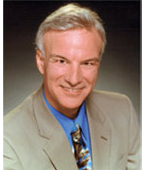
Host: Anti-Aging Psychologist Dr. Michael Brickey
Guest: Dr. Ofer Zur
Broadcast and podcast on webtalkradio.net. The podcast is also below.

Comedian Mike Birbiglia says he dreamt that he could fly but in the dream decided not to fly for safety reasons. Dr. Ofer Zur reminds us that you are more likely to die on the freeway than from life enhancing pursuits that make us feel alive. Ofer and I discussed how most therapy clients, while presenting with problems like depression and anxiety, are primarily seeking a sense of purpose and connection. We discussed how a bucket list is a great is a great idea as long as isn’t static, but gets periodically updated to reflect our changing needs as our lives change.
Ofer talked about how our culture sees death as a failure instead of part of the natural rhythm of life. He sees an emphasis on more toys, fancier cars, cosmetic surgery, more and better sex, and miraculous technology as often an attempt to deny death. Those emphases have a lot of financial vested interests in selling toys and surgeries, in filling hospital and nursing home beds, and in selling pills even when a patient’s quality of life is abysmal.
There are, however, several aspects of our culture that are improving how we view death:
- If you think of Maslow’s hierarchy of needs, most Americans are able to meet their basic needs and have the luxury of being able to give considerable thought and pursuit to being fully alive.
- Most Baby Boomers are not willing to settle for reaching 65, getting a gold watch, and retiring to obscurity. Most want to continue to make a difference at every age. As Ofer put it, they want to die erect.
- Boomers’ experiences caring for aging parents are shaping a more realistic outlook on how they want to age and die.
- While we didn’t talk about it, the greenhouse movement and Eden alternative are starting to change nursing homes from institutions to homes. More information on that is in my Ageless Lifestyles® interview with Beth Baker.
- Americans are increasing seeking alternative medicine as well as conventional medicine.
- The hospice movement has had a huge impact on how we view dying from chronic illnesses.
The hospice movement has prompted increased calls for physicians to go along with a good death. In England in 2007 and 2008, more than 16% of deaths were from continuous deep sedation until death. The procedure usually takes a few days. Most of the patients have terminal illnesses and are in the late stages of dying. Netherlands physicians started with lethal injections, which only takes a few minutes. Continuous deep sedation has become more common there, however, because lethal injections “required so much paperwork.” Oregon’s 1997 Death with Dignity legislation set up a number of procedures to serve as safeguards against requests that don’t involve intractable unbearable pain or terminal illness. This is also called a timely death as opposed to a “premature” death.
Philosopher and right to die advocate James Park makes an excellent argument that rather than setting up a bureaucracy for asking permission to die, we should have laws about what constitutes a premature death. Crossing the line would be a criminal offense and the burden of proof would be on the prosecution. I think that makes a lot of sense. We don’t need a HIPPA law version of a right to die. Personally what I favor most is allowing patients to choose to stop taking medications, dialysis, and even food and water and die a natural death. That way physicians are not dragged into a Dr. Death role and the qualms that may bring.
While I strongly support a right to die as we choose and without bureaucracy, caution is also indicated. Family or governments may pressure people who don’t to die to conserve resources and make a human sacrifice. It’s a slippery slope. I agree with Ofer that we are out of balance in expecting unlimited healthcare as a right and entitlement and not appreciating limited resources. Great caution is needed to make sure the pendulum doesn’t swing too far the other way. It’s one thing for soldiers to make a sacrifice for the greater good. That is very different form asking civilians to give up their lives if they feel it would be premature. The cultural shift needs to come from alternative views like hospice as opposed to bureaucrats. Further, alternatives influence choices. Many who live in nursing homes might choose to die. If they were living in their own home or a Greenhouse or Eden alternative home, might find life quite fulfilling. Those alternatives, by the way, are a little more expensive to build but no more expensive to run.
Well, I’m getting sidetracked on right to life issues. The main theme of the interview was how being ready to die at anytime enhances our living fully now.
Dr. Brickey’s other websites are www.DrBrickey.com and www.Anti-Aging-Speaker.com.
